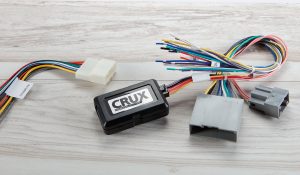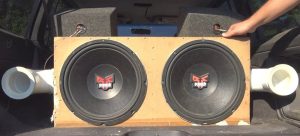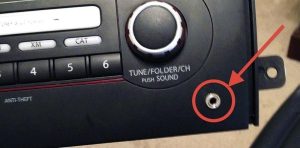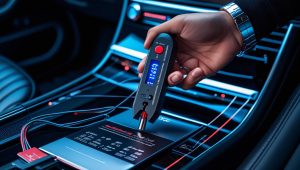As a car stereo enthusiast, there’s nothing more disappointing than a compromised audio experience during your road trips. The culprit may often be elusive, but one component you shouldn’t overlook is your RCA cables. In this guide, we’ll dive into the essentials of “how to test RCA cables for car stereo” to ensure you’re getting the most out of your audio setup.
Contents
The Role of RCA Cables in Your Car Stereo
RCA cables, short for Radio Corporation of America, are a fundamental component of your car stereo system. These cables play a pivotal role in transmitting audio signals from your head unit (the main control center of your car’s audio system) to the amplifier or speakers, ensuring that you experience high-quality sound during your drives.
To break it down further:
- Signal Transmission: The primary function of RCA cables is to transmit audio signals. When you play music or any audio content on your car stereo, the head unit converts the electrical signals into audio signals. These signals then travel through the RCA cables to reach the amplifier or speakers.
- Connection: RCA cables are equipped with connectors at each end, usually color-coded red and white for the right and left audio channels, respectively. These connectors plug into corresponding ports on the head unit and the amplifier or speakers, establishing a secure connection for signal transfer.
- Uncompromised Quality: The quality of RCA cables directly influences the quality of the audio signal. Higher-quality cables are designed with better materials and construction, minimizing signal loss and interference. This results in clearer and more robust audio playback.
- Compatibility: RCA cables are a standard in the audio industry, ensuring compatibility across various audio devices and components. This means you can use RCA cables to connect your car stereo components seamlessly.
Now, why is understanding these basics crucial?
Faults or issues with RCA cables can lead to signal loss, audio distortion, or even a complete lack of sound. By comprehending the fundamental role of RCA cables, you empower yourself to troubleshoot and address potential problems, ensuring that your car stereo system operates at its full potential.
By keeping these basics in mind, you’ll be better equipped to appreciate the significance of testing RCA cables and maintaining a reliable audio connection in your car.
How to Test RCA Cables for Your Car Stereo
Step 1: Visual Inspection Begin your diagnostic journey with a visual inspection. Examine the RCA cables for any visible damage, such as frayed wires, bent connectors, or exposed insulation. A compromised exterior can lead to signal loss and audio degradation.
Step 2: Check for Loose Connections Ensure that the RCA connectors are securely plugged into both the head unit and the amplifier or speakers. A loose connection can lead to intermittent audio problems or a complete loss of signal.
Step 3: Swap Cables To isolate the issue, consider swapping the RCA cables. If the problem persists after swapping, it’s likely not the cables causing the problem. However, if the issue moves to the new set of cables, it’s a clear indication that the original cables were faulty.
Step 4: Use a Multimeter For a more in-depth analysis, employ a multimeter to measure continuity and resistance. Connect the multimeter probes to each end of the RCA cable and check for consistent readings. Any significant deviation may indicate a problem with the cable.
Step 5: Listen for Audio Distortion Play your favorite track at different volume levels and listen closely for any audio distortion, static, or unusual noises. These audible cues can be indicative of RCA cable issues affecting the signal transmission.
Step 6: Test with a Known Good Source Connect your car stereo to a known good audio source, such as another vehicle or home stereo system, using the same RCA cables. If the issue persists, it may be a problem with the car stereo itself rather than the cables.
FAQs: Clearing Up Common Doubts
Q1: Why is testing RCA cables important for my car stereo? Testing RCA cables is crucial because they serve as the lifeline for audio signals in your car stereo setup. Identifying and addressing issues early ensures a seamless audio experience during your drives.
Q2: Can I visually inspect RCA cables without removing them from the car stereo system? Yes, a visual inspection can be done without disconnecting the cables. Look for frayed wires, bent connectors, or any signs of wear and tear. If any issues are visible, further testing may be necessary.
Q3: Are all RCA cables the same, or are there differences in quality? There can be differences in quality among RCA cables. Higher-quality cables typically use better materials and construction, leading to improved signal transmission. However, any RCA cable, regardless of quality, should be tested regularly to ensure optimal performance.
Q4: What should I do if I find a loose connection during testing? If you discover a loose connection, make sure to securely plug the RCA connectors into both the head unit and the amplifier or speakers. A snug connection is essential for consistent signal transmission.
Q5: Can I use a multimeter if I’m not familiar with electronics? Yes, using a multimeter for basic continuity and resistance checks is user-friendly. Follow the instructions provided with the multimeter, and you’ll be able to perform essential tests without advanced technical knowledge.
Q6: Are there any specific audio cues that indicate RCA cable issues during testing? Yes, listen for audio distortion, static, or unusual noises while playing music at different volume levels. These audible cues can be indicative of problems with the RCA cables affecting signal transmission.
Q7: How often should I test my RCA cables? Performing RCA cable tests every few months is a good practice. Regular checks help catch potential issues early and ensure a consistently high-quality audio experience in your car.
Q8: Can I use RCA cables from one brand with components from another? Yes, RCA cables are generally compatible across different brands. However, it’s essential to ensure that the connectors match the input and output ports of your specific components.
Q9: What if the issue persists after testing the RCA cables? If the problem persists, consider testing with a known good source and consult with a professional car audio technician if necessary. The issue may be with the car stereo unit itself, and further diagnostics may be required.
Q10: Are there any preventive measures to maintain RCA cable health? Avoid excessive bending or twisting of the cables, and secure them away from heat sources and moving parts within the car. Regular visual inspections and keeping the connections clean can contribute to the longevity of your RCA cables.
Conclusion
By following these steps on how to test RCA cables for your car stereo, you can troubleshoot and address potential issues to ensure optimal audio quality on your journeys. Regular maintenance and periodic checks will help you enjoy the full potential of your car audio system, ensuring that every drive is accompanied by crystal-clear sound. Keep the beats rolling!






